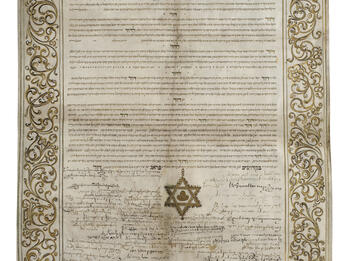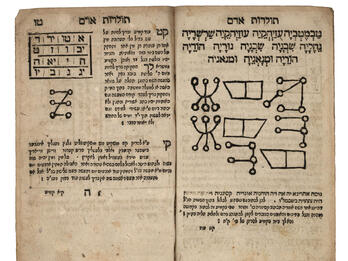Safed Kabbalists
Safed is a town, set on a hill, in the Upper Galilee. In the aftermath of the 1492 expulsion of Jews from Spain, a number of the exiles moved to Safed, joining a small but long-standing Jewish community. When, in 1517, the Ottoman Empire conquered the area, a center of trade, Safed became the administrative center for the local Ottoman province, and its Jewish community flourished, becoming renowned for both rabbinic scholarship and religious piety. Joseph Karo, author of the Shulḥan ‘Arukh (Set Table), moved there in the 1530s, as did the rabbinic scholars Jacob Berab and Moses Trani. In the sixteenth century, Safed became the most important kabbalistic center in the world. Its scholars included the mystic and poet Solomon Alkabetz, who established a circle of pietistically inclined students. Among them was Moses Cordovero, who composed a set of penitential regulations for the confraternity. Perhaps Safed’s most famous kabbalist was the Jerusalem-born Isaac Luria, whose writings were preserved by his student Ḥayim Vital. Other rules and regulations, based on mystical teachings, were developed and recorded by the kabbalists in Safed. Among their most important innovations was the liturgy for the evening service welcoming the Sabbath, known as Kabbalat Shabbat.



